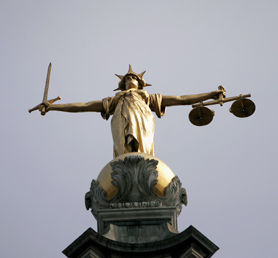Government outlines proposed cuts to legal aid
The Government has unveiled plans to cut £350million a year from the legal aid budget – including making people with over £1,000 in assets contribute to their legal costs, as Simon Israel discovers.
Under the plans, announced in the Commons by the Justice Secretary Kenneth Clarke, the government wants people with assets of £1,000 or more to contribute at least £100 to their cases. The current threshold is £8,000.
Areas which could no longer be eligible for legal aid included: immigration cases, private family law cases (such as marital or divorce disputes unless these involve domestic violence) and clinical negligence lawsuits.
“It cannot be right that the taxpayer is footing the bill for unnecessary court cases which would never have even reached the courtroom door, were it not for the fact that somebody else was paying.” Mr Clarke told MPs.
Some help
Areas which the Justice Secretary said would still attract state help included asylum cases, mental health cases and situations where someone is at risk of losing their home.
Other plans include a proposal to find alternative funding for legal aid such as the government claiming any interest earned on clients’ monies being held by solicitors.
If implemented in their entirety, it is estimated that the proposals will achieve savings of around £350m a year by 2014-15, making a significant contribution to the department’s commitment to reduce its overall spend by £2bn by 2014-2015.
Areas to be removed from legal aid
- Private family law cases unless domestic violence or child abduction is involved
- Clinical negligence
- Welfare benefits, unless there is the threat of a person losing their home
- Education cases such as school exclusion appeals
- Employment
Areas which will continue to be eligible
- Asylum
- Mental health cases
- Domestic violence
- Cases where people are holding the state to account

‘Only poorest of poor will be eligible’
The plans have been criticised by the Law Society, the body which represents solicitors in England and Wales.
Chief executive Desmond Hudson said: “Legal aid clients are some of the most vulnerable in society and good legal representation where required is essential if they are to obtain justice.
“The Lord Chancellor has made it clear that only the poorest of the poor will continue to be eligible for legal aid.
“If the government persists with these proposals it would represent a sharp break from the long-standing bipartisan consensus that effective access to justice is essential to underpin the rule of law.”
Concerns
The access to justice charity Legal Action Group said the proposed removal of many family cases from legal aid could lead to more people representing themselves in court. Its director Steve Hynes said: “We would agree that cases such as these should be subject to mediation and taken out of the courts but people still tend to go to court to resolve issues such as contact arrangements.
The charity also has concerns that advice charities which currently offer legal help could see cuts to their budgets: “It will mean a 20 per cent drop in income for Citizens Advice Bureaux and half a million fewer people helped by the system, which is a quarter of the amount currently helped.”